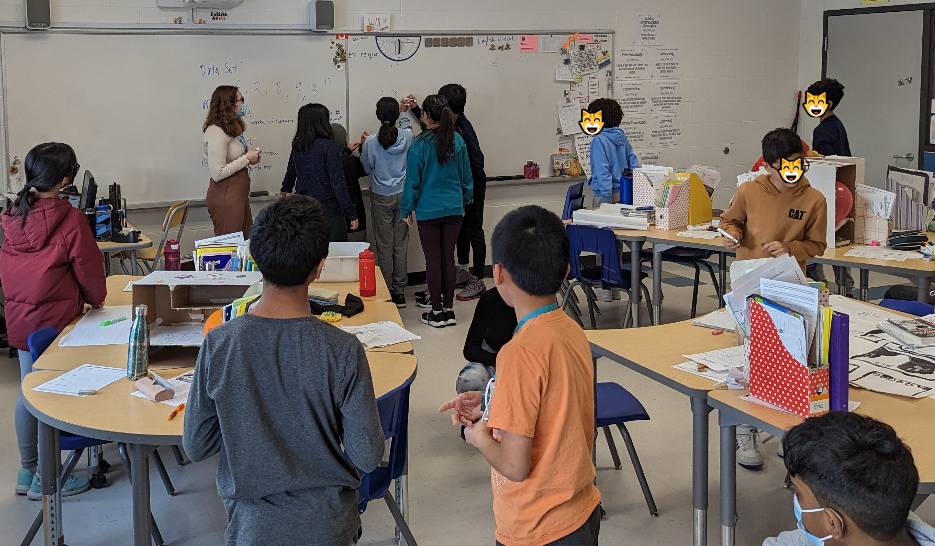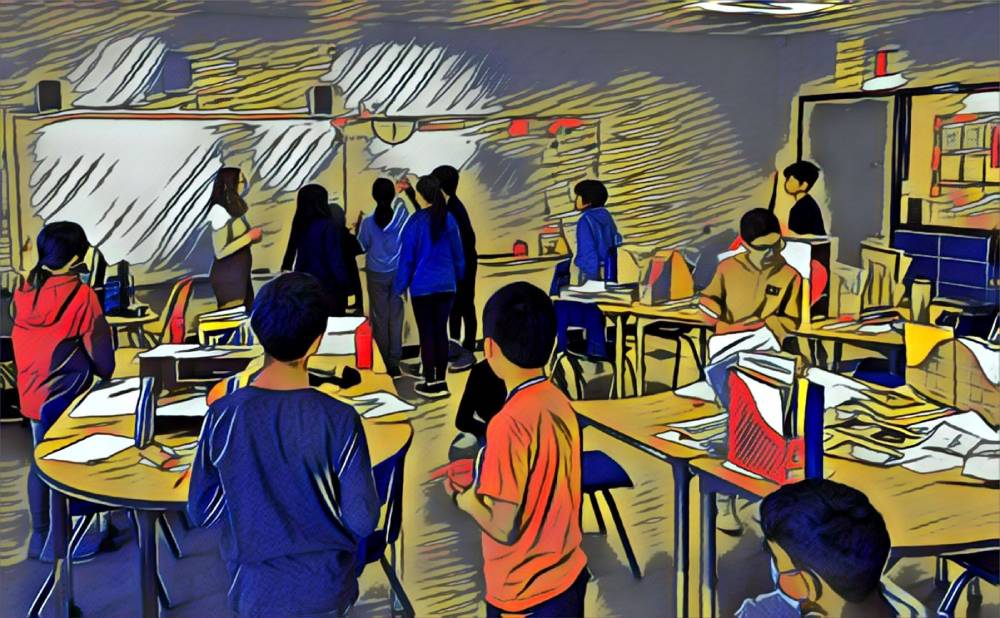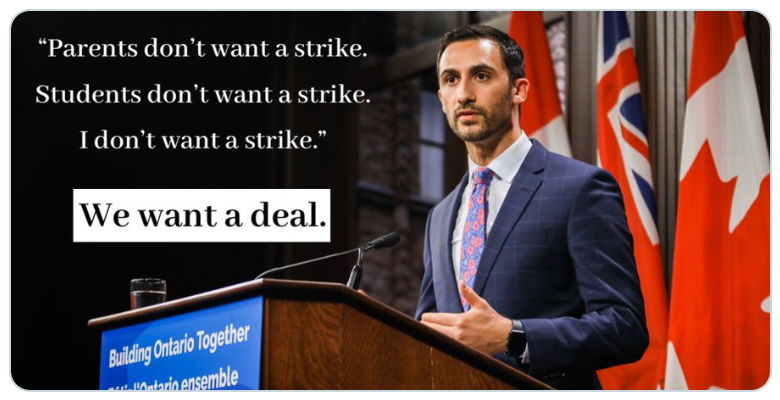6/194 and cross-curricular life learning.
This blog title could also read, “Why a small fraction means so much to the future?”
I am trying to make sense out of some pretty important numbers that are affecting us. By us, I mean students, their families, and educators. “Us” also means the entire fabric of society that we share and by which we are covered. Since the currently elected government is seeking to tear this fabric apart without regard to the long term social and financial consequences, I thought it would be good to consider this post as a cross-curricular exercise and include social studies along with the math.
Whoa!(Math)
6, the number of days ETFO members have walked on the picket line fighting for public education.
194, the number of days in a given school year that we spend in the classroom making public education incredible.
Now a few more relatable figures.
3/97 or 0.030927835, just a shade over 3%. I had to simplify the fraction. Ironically, it’s the same amount that the government has legislated an offer to 83 000 ETFO, 117 000 educators (OSSTF, OECTA, AEFO), and 55 000 CUPE education workers in Ontario. Yup! 1% per year over 3 years.
Back to 6/194
That hole in our paychecks from this fight to protect and preserve public education hurts and the offer of 1% per year is unconscionable. Not surprisingly, the government padded their own pockets with 14% and took 7 of the last 12 months off(insert lesson about irony here). Since we’re talking about irony, why not share a real life teachable moment? I’m thinking a critical thinking exercise about the veracity of facts, content, and the credibility of media outlets especially where they originate or how news gets fabricated.
Want another amazing lesson? Check out this thread by @ms_keats This thread offers a wonderfully considerate lesson via Twitter after the MOE suddenly made Reg 274 an issue during negotiations with ETFO. Sadly, talks broke off, but since education is always their priority, the public can trust that the government was back to work at the bargaining table the next day because they are committed to a deal(Is sarcasm in the curriculum?). Isn’t that what unions and their employers do in good faith in a democratic society?
Wait! What?(Social Studies)
What do you mean the government wasn’t at the bargaining table?! This is a realistic expectation because we are teaching our students(grade 5) that Canada, therefore Ontario is a civilized society governed by lawmakers who are always respectful of the rule of law and the Canadian Charter of Rights and Freedoms? I contend that the current government is engaging in a systemic violation of our Charter Rights as citizens as their thoughtless actions threaten the rights to opportunity in the future of 2 000 000 students and the collective bargaining rights of 200 000 educators “not to be subjected to any cruel and unusual treatment or punishment”. This line from the Charter is not limited to the criminal justice system, and any intentional underfunding of education through ruthless cuts is tantamount to punitive legislation and is contrary to our Charter rights.
If that wasn’t enough to light a legal inferno, then consider that a 6 – 1 Supreme Court of Canada ruling affirmed that collective bargaining rights are human rights, and the role of collective bargaining has “in promoting the core values of “human dignity, equality, liberty, respect for the autonomy of the person and the enhancement of democracy.””
I’m sharing the quote below with bolded and underlined main points, if my MPP, the MOE, or the Premier read this;
“the Supreme Court proclaimed labour rights to be human rights, and boldly declared for the first time that collective bargaining is a “constitutional right” supported by the Charter.“
So our elected officials who have violated the Charter should now have to face the consequences for their malevolent disregard for the rights of its citizens. Right? I won’t hold my breath as legal cases against governments spend years in the courts. However, we cannot allow our elected officials to rule by decree without accountability to the whole public whom they have sworn to serve.
Civics does not equal civility
When will they pay for selling out the future and for the harm they will inflict to the well-being of the students in our province? We will not lose count of the lies, the streams of misinformed statements, the factless rhetoric, the accusations, the doubling down, the vilification of our noble profession, and of the requests we have made for them to come to the table and negotiate.
I also contend that the current government is angling its way towards a secondary agenda authored by pernicious profit seekers including publishers and private education providers looking for a piece of the public education pie. These steps do not appear to benefit our students. Our steps on the picket line have shown more to the public of our commitment to excellence than any sound bite, attack, or child care bribe put forth by the government. There is strength in our numbers.
Come to think of it, I have kept count of the steps I have stepped – 90 000 plus, the waves I have waved to drivers honking in support – 1 000s, the dozens of encouraging conversations conversed on the picket line, and the 3 people who waved with their middle fingers while yelling single syllable words.
It’s my first strike as an educator. Yet, it feels like our current fight against this government’s assault on public education is nothing new. Everyone remembers what Mike Harris and his ilk did in the 90s. The Ford Regime is Harris 2.0 complete with vitriol and misinformation spewing from a cadre of party whipped sychophant proxies acting as media drones du jour. In response, teachers are standing in solidarity together fighting for respect, transparency, and fairness on behalf of all Ontarians who will be directly affected by cuts to education now and in the future.
Teachers believe this so much, that have given up 3% of our wages already. We know that we are part of a world class education system because we work in it everyday. The results speak for themselves which is why it is so frustrating to see people trying to dismantle what is working well.
6/194 is a small fraction especially knowing how teachers, especially in 1997, fought for us. This will mean even more to the students of Ontario who will bear the burden or benefits because of our actions in the future.
Thank you for reading and for sharing on social-media.
Further reading:
This Collective Bargaining Rights Day, Unions Celebrate Wins for All Workers




